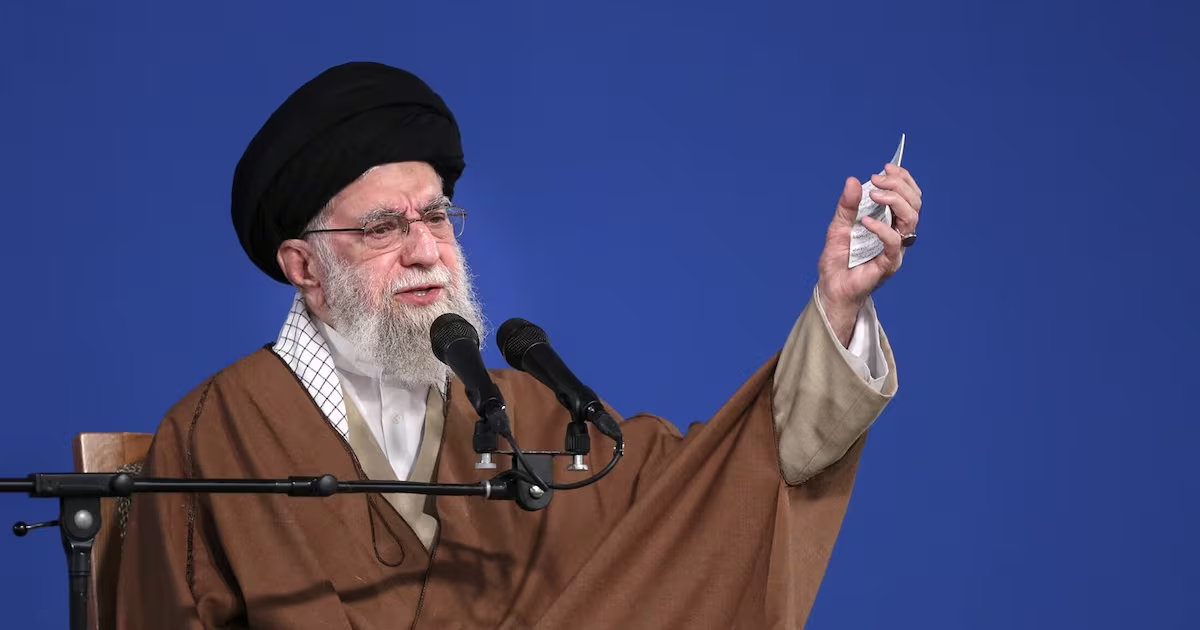TEHRAN / WASHINGTON – In his first public address since a ceasefire with Israel was established on Tuesday, Iran’s Supreme Leader Ayatollah Ali Khamenei asserted that the recent U.S. strikes on Iranian nuclear facilities “gained no achievements” and did not “accomplish anything significant” in disrupting Iran’s nuclear program. He further described Iran’s retaliation against an American air base in Qatar as a “heavy blow,” warning that similar actions could be repeated if Iran faces further aggression.
Khamenei, who had largely remained out of public view since the direct conflict with Israel began on June 13, delivered a televised address on Thursday morning, ending a week of public silence during which speculation about his whereabouts intensified. Iranian authorities did not disclose his location, though a senior official confirmed he was in a “safe place” earlier in the week.
The Supreme Leader’s defiant stance comes as Washington firmly maintains that its strikes severely undermined Iran’s nuclear ambitions. U.S. Defence Secretary Pete Hegseth, speaking at a Pentagon press conference on Thursday, stated that intelligence from both the U.S. and Israel indicates the operation “significantly damaged the nuclear programme, setting it back by years.” Hegseth staunchly defended President Donald Trump’s earlier claims that the strikes “totally obliterated” the sites, dismissing reports from unnamed American officials suggesting less extensive damage.
Chairman of the Joint Chiefs of Staff Dan Caine, appearing alongside Hegseth, showcased test footage of “bunker buster” bombs used in Iran and asserted that the mission was a “historic success” that rendered Iranian enrichment facilities “inoperable.” Hegseth also claimed the U.S. had no intelligence suggesting enriched uranium had been moved from the deeply buried Fordo facility prior to the strikes.
Despite U.S. assurances of success, the head of the UN nuclear watchdog, Rafael Grossi, stated on Wednesday there was a chance Tehran had moved much of its highly enriched uranium elsewhere before the attacks.
In a significant development, Iran on Thursday approved a parliamentary bill to cease cooperation with the International Atomic Energy Agency (IAEA), indicating it will no longer allow nuclear inspectors into its sites. This move follows the IAEA’s board of governors declaring Iran in breach of non-proliferation obligations for the first time in 20 years, just a day before the conflict erupted. Iran consistently denies seeking nuclear weapons, asserting its program is for civilian purposes.
The 12-day conflict, which began on June 13 after Israeli Prime Minister Benjamin Netanyahu warned Iran could “produce a nuclear weapon in a very short time,” resulted in significant casualties. Iran’s health ministry reported 610 people killed during the air attacks, while Israeli authorities confirmed 28 fatalities.
Meanwhile, CBS News reports that the White House is exploring options to bring Iran back to the negotiating table, potentially including facilitating funding for a civilian, non-enrichment nuclear program. However, Iran’s foreign minister told state TV on Thursday that no talks with the U.S. are currently planned.

